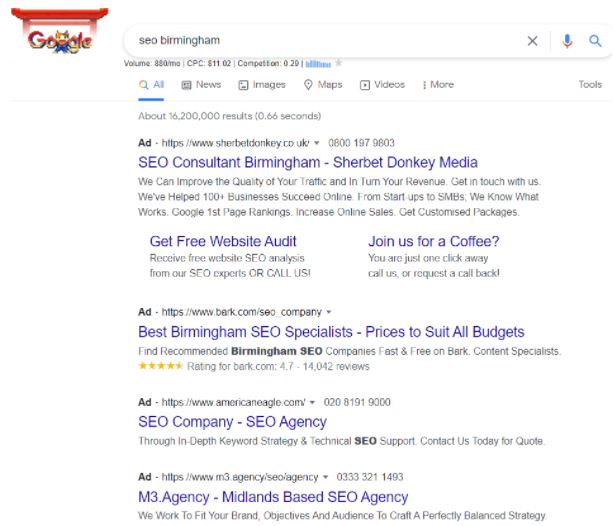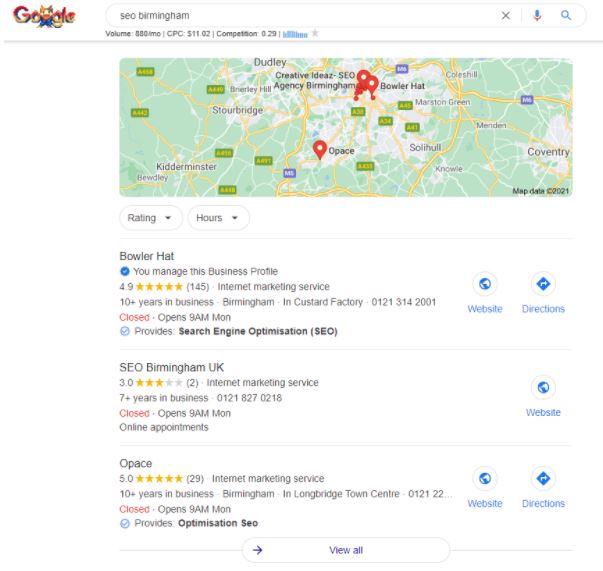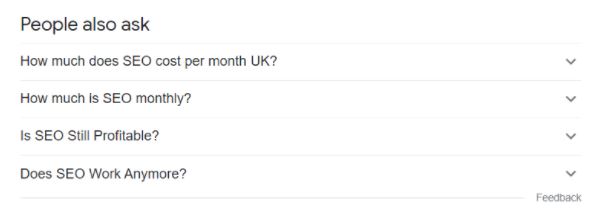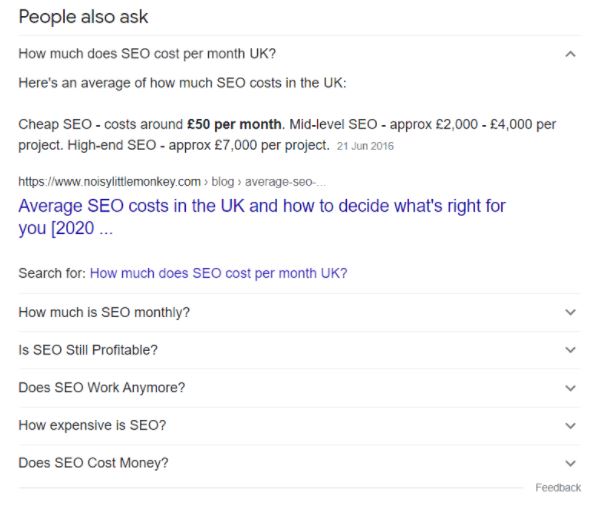Buying SEO can be a minefield.
Sorry, that is misleading, buying SEO is a minefield.
Finding a competent and reliable SEO company is not easy.
This is made harder still if you are looking in a specific location, like Birmingham. This further narrows down your options and makes the odds of finding a company that can help you get real results all the more difficult.
In this article, we will work through an example of a search for an SEO company in our local town – Birmingham.
We will also take a look at whether you actually need a company that is physically local to you or your location or whether you can open this up geographically to get better results.
Time to Read
This article will take about 10 mins to read through – consider it an investment in the future of your business. For most small businesses, SEO is no longer optional and making bad decisions here will cost you time and money. This inactivity will see your competitors move forward whilst you fall further behind. Consider this 10 minutes as an investment in your future success.
Free SEO Audit & Battle Plan – if this all sounds like too much work just drop us a line and one of our highly skilled SEO consultants will review your situation and provide you with a complimentary SEO plan. Note, this is not a crappy automated report, rather this is a manual audit by an experienced SEO consultant.
Free SEO Audit and Battle Plan
Quick Links
Time challenged? We won’t be upset if you don’t read everything so just use these links to jump to the relevant part of the article.
- So You Googled “SEO Birmingham”
- Does the SEO Company Need to be in Birmingham?
- Understanding the Search Results
- Choosing an SEO Company
Full Disclosure – we are an SEO company based in central Birmingham at the Custard Factory. However, we don’t just work with businesses from the Birmingham area but across the country (and the globe) and we figure we can help small businesses make better decisions. I am also keen to see how well an informational article ranks for a location-biased term like “SEO Birmingham” as I am a bit of a search geek. Read on. 🙂
1. So You Googled “SEO Birmingham”
So, you have searched on Google for “SEO Birmingham” and you are presented with a dizzying array of choices, one of which brought you here, but you still likely have many questions:
- What kind of SEO company do you need?
- How do you know who is any good?
- Who will be a good fit for your specific needs?
- Do they have experience in your industry?
- Is the company trustworthy?
- Are they fairly priced?
- Does the company follow Google’s webmaster guidelines for SEO [1]?
It is an important decision and there are a lot of moving parts. Choose well and you will move forward. Choose badly and your competitors will eat up all that fresh, juicy business that should be yours.
So, the first question you need to ask yourself is:
2. Does the SEO Company Need to be near you?
If you need a plumber or a roofer then they need to be relatively local as they must travel to your location to complete the work. For an SEO company though, this work is largely done online so there is no strong reason why the company needs to be in the same town.
Now, I would argue that in most cases, and certainly for local businesses, having a company in the same country makes a lot of sense. Search results can look a little different in other countries and languages so I would rarely cast a net outside your own country.
But, we have to ask, is the physical location of the company the most important factor here?
I would argue that relevant experience in your industry and with companies that are similar to yours is a primary selection criterion, and certainly more important than the physical location of the business.
In a nutshell, SEO can be all kinds of complicated so make sure the company has relevant experience.
Also, we have to consider the status and history of your business. Are you a startup or small firm? If so, this could be harder as it is one thing helping a huge, established company with bad SEO to rank by polishing their on-page and technical SEO, but getting a new business, without much authority, ranking in a competitive industry can be a whole other kettle of fish (kettle of SEO?).
When it comes down to it, the only real reason to be close is for meetings and, in reality, how often do they need to happen? The majority of these can also be conducted over Zoom or some other video conferencing platform. An initial get together at a mutually agreed spot plus regular video meetings can really open up your choices here, so is at the very least worthy of consideration.
Now, I am not trying to do ourselves or any other Birmingham SEO company out of local work – but it is important to work with the best company rather than the closest company.
Key takeaway: there are many things to consider, but relevant experience and provable results with similar companies are way more important than the company being local to Birmingham.
3. Understanding the Search Results
The next area that is important is for you to understand what a page of search results looks like and where there are opportunities for your business.
A modern page of search results, often known as a SERP (Search Engine Results Page), will include many different types of listings.
Let’s consider the search that brought you here:
SEO Birmingham
- 4 x ads
- 3 x local listings
- 4 x organic listings
- 4 x people also ask questions
- 6 x organic listings
- 3 x ads
- 8 x related search terms
That is over 30 different links to click on. Many of these will take you to more listings (map results) and some elements like the people-also-ask results will generate more links below when clicked.
So, crucial to building out an SEO strategy is understanding the fabric of a page of Google results and knowing what areas of the page are important to you.
Understanding the results and knowing what part of the page has value for your business will empower you when choosing an agency to work with.
So, let’s examine each of these result types quickly so you can make a more informed decision when selecting companies to work with.
Key takeaway: search engine result pages (aka SERPs if you are one of the cool kids) are highly complex with many different types of content and links baying for your attention. To succeed in modern SEO you have to consider all relevant features on a page of results.
Note: If you are time-challenged – I get it – just click here to jump to the questions you need to ask any potential SEO agencies (and come back and read the breakdown when your schedule eases up). Alternatively, get a free SEO Audit, Strategy and Battle Plan here to find out exactly what you need to do to improve your SEO (for Birmingham and beyond).
3.1. Search Ads – SEO Birmingham
The screenshot below shows the search ads on Google for the search term “SEO Birmingham”.

The ads appear directly at the top of the results page and are often the only results you can see without scrolling down the page. On mobile phones and even smaller laptops where we have 4 listings and the top one has 2 sub-listings known as sitelinks, then the page is dominated by these ads.
Generally, for a keyword that has a location specified (like “SEO Birmingham”) then the organic (non-paid) results will be for businesses in that location (give or take). However, with paid ads, the business could be based anywhere and here we see a company called “AmericanEagle” that seems to be based in the US.
The main thing to keep in mind here is that these listings could be for businesses anywhere in the world, so they are not necessarily local businesses (which in itself may not be a bad thing).
3.2. Local Listings
Next up, below the paid listings for the search term “SEO Birmingham” we have the local listings.

Google shows local listings whenever they believe the search query in itself indicates that this is a search for a local business.
There are two formats a local search query can take:
- The location is specified in the search query as it is in “SEO Birmingham”.
- The location is implied by the nature of the query as it would be for a term like “plumber”.
This is an important distinction as even without a location specified, some searches are heavily localised based on the implied intent behind the search query.
Searches for a plumber are almost always local, and the results reflect this. However, a search for “SEO” could have a broader range of possible intent so this does not localise quite so aggressively. For a search of “SEO”, we see a local pack, but it is further down the page and after some SEO guides and more informational content. Juxtapose this with “SEO Birmingham” where we see the local pack first and then 10 listings for local businesses.
There are actually two locations of importance for a local search query:
- The location specified (or implied) by the search query – aka “SEO Birmingham”.
- The location of the person conducting the search query.
Looking at the screenshot above we see the world-famous agency Bowler Hat (where you are now) along with what looks like a spammy listing for “SEO Birmingham UK” and another local agency, Opace.
Using Bowler Hat as an example, we are in central Birmingham and when I conducted this search I was also in Birmingham. Here, we can see how these two location factors influence the results:
- I am searching about SEO in Birmingham.
- I am currently in the same location as our business.
I am as close as possible to our business premises so it is no surprise that these location biased results show us at the top as the first unpaid listing.
Takeaway: local results are biased by the location searched for and the location of the individual conducting the search.
3.3. Organic Listings
Below the local results, we have the organic listings. These are the traditional search engine listings known as the 10 blue links.
Historically, these 10 blue links would exist as a single block. Now, in 2021 and beyond, they are often interspersed with other types of results: images, news, video, questions and answers, etc.
In the example we are looking at here for SEO Birmingham, we can see the following results:
SEO Birmingham
- <ads above>
- 3 x local listings
- 4 x organic listings
- 4 x people also ask questions
- 6 x organic listings
- <ads & related terms below>
Here, in our organic results, we have a local map pack, 4 x standard organic listings, 4 x people also ask questions, and a further 6 organic listings.
This is a fairly traditional set of search results with local results up first and then only a set of people-also-ask results interrupting the flow of 10 links.
The links we see here are predominantly Birmingham-based SEO companies that are looking for local customers.
Takeaway: the layout of the non-paid, and even to a lesser extent, the paid listings, is highly dynamic and changes depending upon the intent behind the search query.
3.4. People Also Ask Questions
In many sets of search results, Google now includes these questions and answers:

These questions and answers are ever more common in modern search results and provide insights into the mindset of other people who are searching around the same terms.
We see some interesting questions here relating to costs of SEO, the profitability of SEO, and even whether SEO even works any longer.
Clicking on one of these listings will reveal an answer and add a few more related questions to the bottom of the list.

Key takeaway: most search results will now contain these Q&A people-also-ask results and these can be a source of brand exposure and traffic.
3.5. More Organic Listings
On this page of search results, the organic listings are split so we have a second set of 5 organic listings after the people also ask questions.
3.6. Ads
At the bottom of the page, we also have 3 more Google Ads.
3.7. Related Search Terms
Finally, we have a set of related search terms. The thinking here from Google is that if you have got to the bottom of the page but not found what you need, this is a signpost to other potential searches that may be relevant.
4. Choosing an SEO Company
Phew. Still with me?
Most people will not get this far.
Choosing an SEO or digital marketing company is a big decision. However, the majority will just not put the effort in.
This is the 80/20 Pareto Principle in full effect. In reality, this applies again as only 20% of the 20% that actually read the article will apply the wisdom and make a smarter choice when it comes to choosing an SEO agency.
Welcome to the Top 1%
Like everything else in life and business, nothing is easy. Choosing an SEO company when you are an overwhelmed business owner is just another problem to solve.
The temptation is to just click on the first few adverts, get a couple of quotes, and go with the cheapest – let’s not do that.
If you think SEO is expensive now, wait until you see how expensive it is to pay a cheap company that delivers no value and wastes your time.
5 Questions to Ask an SEO Company
Below are a series of questions you can pose to a potential SEO agency. These will help you get a measure of the agency and how helpful they are likely to be.
- What is your SEO philosophy?
This is a key question and you are trying to determine if this agency works with Google, by helping to make your site better and deliver value, or they have some under-the-counter set of black hat SEO tactics that they use to rank you.
Successful SEO requires a strategic understanding of the search environment and your marketplace, technical skills, a user-focused approach, content development, and PR.
Most companies, however, will focus on just one area like link building, so the answer you receive here will help you understand the mindset of the company you choose to work with.
- How will you apply your SEO approach to our business?
Your situation will be unique so you need the agency to let you know that they will perform an in-depth analysis of your situation and then outline a strategy around your unique needs. If the strategy is off-the-shelf, this agency should stay on the shelf!
- What metrics will you use to measure success?
There are two things you are looking for here.
Firstly, you want them to ask you what success looks like so they can adapt the metrics to your requirements.
Then, you want to know that the measurements the agency uses to measure success are tied to your business objectives. Keywords and rankings are an important metric, but if they are not looking at actual business enquiries from organic then this should set off alarm bells.
- How long will SEO take?
This is a difficult question to answer off-the-cuff as it depends upon two key factors:
- Situation – where are you now?
- Objectives – where do you want to be?
Truly accurate answers to this kind of question are difficult. If the promises are too optimistic, this should be concerning as you may be talking to a salesperson who is making promises the SEO team can’t hope to fulfil.
Here you would like to see mention of some analysis, ideally a free audit which will give the agency an understanding of where you are currently. This, combined with your goals (where you want to be), will give the agency an idea of what it will take to get you there (and ideally at different budget levels).
- How will you report?
Reporting is important and understanding what is included here helps set expectations.
Is reporting monthly? Do you get a call? Will this feature all your KPIs and metrics that enable you to easily assess your return on the investment?
Many agencies will just provide a basic reporting platform that shows rankings – all very nice, but this is not business. All too often, the keywords tracked are cherry-picked to make the agency look good whilst delivering no real traffic.
That’s a Wrap
Congratulations. You made it to the end. If you got here then you should be well-armed to find the right SEO company to help you grow your business.
If you have any questions please drop a comment below and we will be happy to help.
Free SEO Audit & Battle Plan
If you would like to find out exactly what you need to do to help improve your visibility on Google then get in touch and we will provide you with a free, 150-point SEO Audit and Battle Plan that shows you exactly what you need to do to win in Google search.
- Google’s Webmaster Guidelines: https://developers.google.com/search/docs/advanced/guidelines/webmaster-guidelines
- Google’s own SEO Starter Guide: https://developers.google.com/search/docs/beginner/seo-starter-guide






